
Austria’s June steel production rises on-year
Austria’s steelmakers decreased crude steel production in June compared to the previous month, according to worldsteel data.
Output amounted to 648,000 tonnes, down by 1.8% compared to May, but 2.7% more on-year, Kallanish notes.
In January-June, the country produced 3.78 million tonnes of steel, down 4% on-year.
In 2022, Austria reduced steel production by 4.7% on-year to 7.51mt.
Overall EU output in June fell by 11.1% on-year to 10.6mt. In January-June, EU steelmakers produced 66.3mt, down 10.9% on-year.
Austria’s largest steelmaker voestalpine expects good earnings after a strong 2022/23 fiscal year (see Kallanish passim). It recorded the highest level of revenue and best operating result in its history, surpassing even its record year of 2021/22. The Austrian group’s revenue rose by 22.1% over the previous year to €18.2 billion ($19.2 billion), and Ebitda from €2.3 billion to €2.5 billion.
The firm said in June expectations were more cautious because of the war in Ukraine, among other geopolitical tensions worldwide, and inflation in both Europe and North America turning out to be more persistent than expected. Still, the company expects Ebitda to reach €1.7-1.9 billion in the current fiscal year.
Earlier, voestalpine approved an investment of around €1.5 billion for the construction of one electric arc furnace at each of its two sites in Austria – Linz and Donawitz. These will ultimately replace two blast furnaces by 2027.
Svetoslav Abrossimov Bulgaria

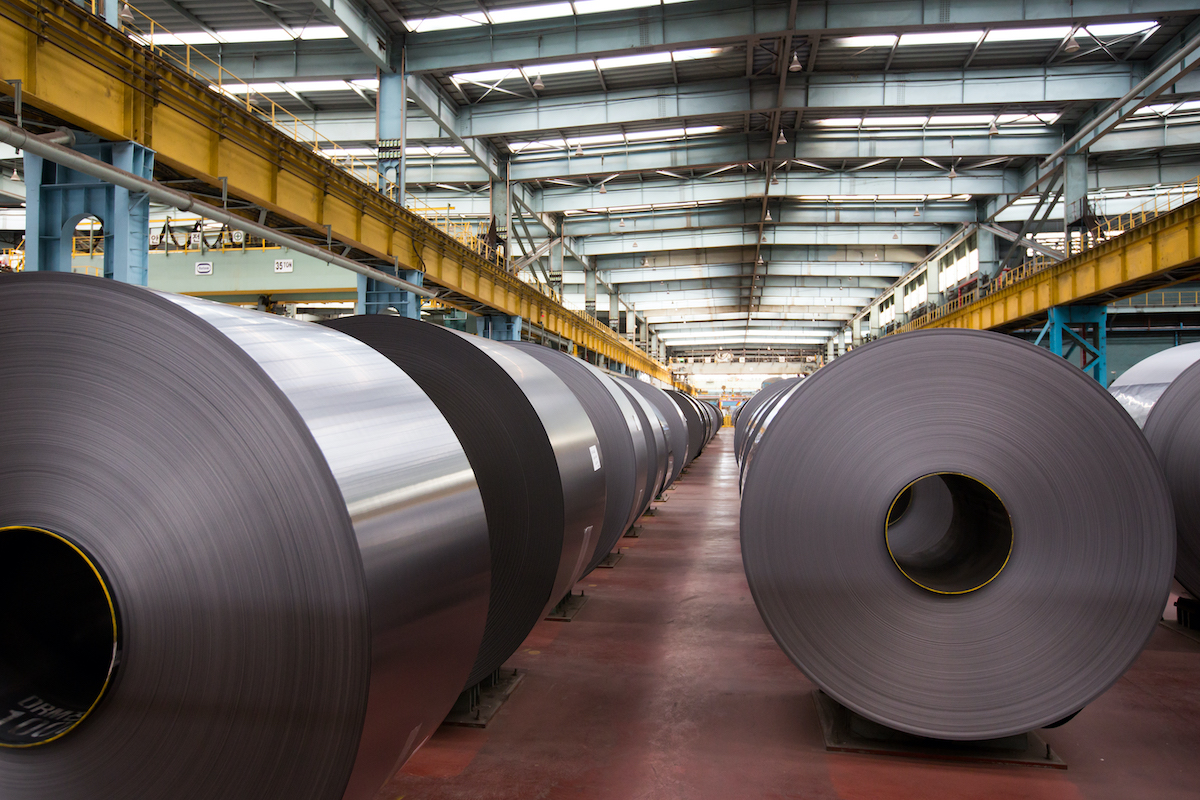
German coil market sees some bottlenecks
Coil buyers in Germany say they have experienced some shortages in recent months. These were nevertheless confined to local suppliers serving high-standard applications and may not have been widely heard in the overall sluggish commodity market.
One player is SSC Becker, Germany’s largest service centre, which has been suffering from hurdles launching the new ERP (enterprise resource system) it introduced in spring. “This has influenced our deliveries, which we regret very much. We kept informing our customers in the interest of a trust-based relationship,” the company tells Kallanish.
Meanwhile, a task force of IT, sales and logistics has worked intensely to overcome those issues. Deliveries are now nearing the volumes they saw prior to the ERP launch, Becker says. However, it also mentions shortages it is experiencing as a buyer, due to insufficient delivery performance by its suppliers.
According to another observer, this points to one mill that declared force majeure in June after heavy rains, but was apparently already struggling with meeting targets before that. “They [the mill] thought they could produce at full capacity, which did not work, so they had to turn down orders in order to return to normality,” he says.
Still, this mill’s case of force majeure was justified, unlike that of Tata Ijmuiden, which was declared for technical shortcomings, he claims. He adds that his company is still in negotiations with Tata about the resulting cancelled volumes. “You do have to concede some loss in such cases, but we solved most of it by negotiating,” he says.
Observers also suggest that ArcelorMittal exaggerated the damage resulting from accidents at some of its mills in Europe, taking it as a welcome argument to keep production down amidst a sluggish market.
Christian Koehl Germany


Italian September tube may hike on costlier HRC
Italian welded tube prices are seen increasing in September, in line with the expected increases in coil values. The welded tube market remains subdued, with demand weak and prices depressed in most European countries, sellers and buyers tell Kallanish.
Tube values continue to lag behind hot rolled coil tags due to weak downstream demand. Uncertainty is dominating the market, which is now quiet due to the August holiday break. Discounts remain at 37-39 points, with purchases implemented only back-to-back and prices unsustainable compared to processing costs.
Commodity grade 40x40x3 product remains at €800/tonne ex-works, which provides practically no margin. While some positive signals are coming from the automotive sector, many other industries are ordering low volumes and distributors are keeping stocks low. Tube sales in July and the first week of August are reported to be weak with no significant restocking occurring.
The Italian and European HRC market is however forecast to become livelier in September and prices to increase, pushed up by the exhaustion of EU import quotas. Third-quarter quotas from Vietnam, Indonesia and other Asian countries are already exhausted, while few tonnages remain from Korea. Buyers can import only from Turkey, whose suppliers are offering higher prices, as well as from India.
HRC buyers say Korean suppliers will give no allocations to Italy for Q4 and new import quotas will expire on 1 October, the same day as they are renewed. Amid the general downturn of the steel sector in Europe, this seems the only good news for September, and both coil and coil derivative prices are seen increasing, albeit gradually. The market remains fragile. Downstream demand and consumer confidence are seen remaining weak, with no surprises until the end of the year.
The target for re-rollers is to reach 35 points for tube discounts. Sources see September HRC prices at €700/t ($766) base ex-works.
Natalia Capra France


Northwest Europe coil prices unmoved, possibly softening
Coil prices in northwestern Europe have seen limited movement and it looks unlikely this will change after the summer holidays. Some sources do not exclude the possibility of a further minor drop in prices.
Although some participants say ArcelorMittal claims to have started to reverse the pricing downtrend, this is not being confirmed from the side of the buyers. In fact, one buyer suggests that September could see another dip, as “the demand just isn’t there”. A spokesman of a distribution group concurs, stating: “We see the trend of softening prices still being in force.” He adds: “With every dip, the [pricing] floor consolidation is coming nearer, though.”
A Benelux service centre manager observes: “Steel demand has slowly continued to rise in recent times.” But then he cautions that “this seems to be mainly a hedge against the risk of possible shortages, but not an economic structural improvement in demand.” Prices of hot rolled coil are seen bottoming at, or slightly below, €650/tonne ($715), with cold rolled and hot-dip galvanized coil fetching €80-100/t more.
Some rather low prices heard earlier for CRC, a mere €40 above those for HRC, applied to sheet sold by distributors, rather than coil sold by mills, a German manager tells Kallanish. “Mills’ offers were rather stable but, downstream, some have sold sheet at intake prices,” she says. “It is crazy, but if one starts, ten others follow suit.”
Import offers have meanwhile risen, with HRC reaching €600/t cfr Antwerp, up €20-30 if including customs fees.
Christian Koehl Germany

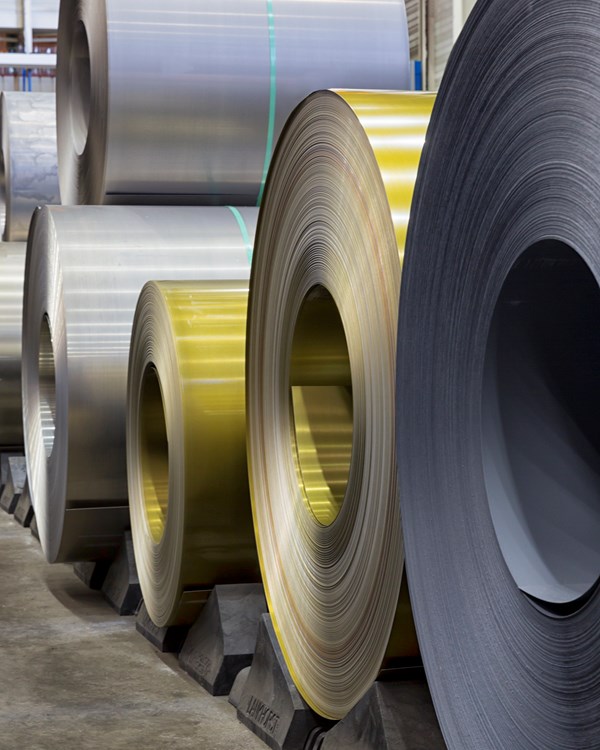
European HRC prices stable amid seasonal slowdown
Fastmarkets’ daily steel hot-rolled coil index domestic, exw Northern Europe was calculated at €645.83 ($706.36) per tonne on August 4, up by €0.83 per tonne from €645.00 per tonne on Wednesday August 3.
The latest calculation of the Northern European index was down by €10.17 per tonne week on week and by €35.63 per tonne month on month.
Firm offers in the region were rare, however, with most major mills preferring to hold back, sources said.
One mill in the region was heard offering November-rolling HRC at around €700 per tonne EXW, which was way above buyer estimates of the tradable level at €630-650 per tonne EXW on Friday.
Another producer was offering HRC with lead times in October at €650 per tonne EXW.
“Some mills have thinner order books, so they are trying to find new orders, but because most customers are on holiday it’s quite difficult for them to book anything,” a trading source in the region said.
Trading was practically non-existent across the European HRC market due to the ongoing summer holiday season, with no change is expected until the end of August at least, sources told Fastmarkets.
In terms of the post-holiday outlook, however, European producers were cautiously optimistic and expect to achieve some upticks in prices, driven by an anticipated increase in apparent steel demand.
In addition, the swift take-up of HRC safeguard quotas in the “other countries” category and by South Korea would serve to exclude the most-competitive import supplier from the market, so European mills also expect to see less pressure on prices from imports.
Fastmarkets calculated its daily steel hot-rolled coil index domestic, exw Italy at €636.25 per tonne on Friday, up by €0.42 from €635.83 per tonne on Thursday.
The Italian index was down by €8.33 per tonne week on week and by €21.67 per tonne month on month.
The market in Italy currently remains in “holiday mode,” sources said, with most mills and buyers still inactive.
Some buyers reported tradable prices for September-October-delivery HRC at €630-640 per tonne ex-works on August 4.
But sources said it was likely that Italian mills will try to push for higher prices after the summer stoppages.
“European mills hope that a lack of cheaper imports will help them to regain bargaining power in September,” a trading source in Southern Europe told Fastmarkets.

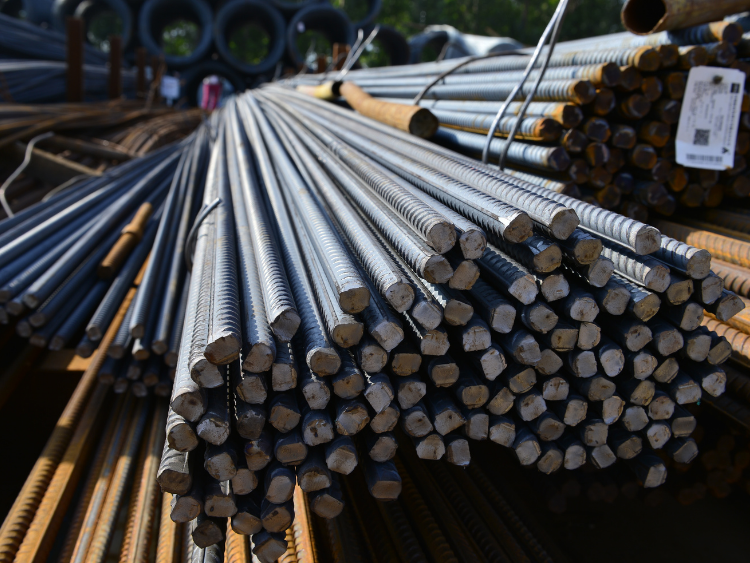
Seasonal slowdown keeps Polish rebar prices flat; market hoping for demand rebound in September
Rebar offers from three local producers were broadly stable week on week at 2,660-2,680 zloty ($653-658) per tonne CPT (about 2,630-2,650 zloty per tonne EXW).
Transactions were scarce, however, with tradable values reported at 2,600-2,650 zloty per tonne ex-works, depending on the tonnage. Mills in the region were able to offer rebar from stock with quick shipment, market sources said.
Sources said they expect rebar prices to stabilize in the coming weeks and were cautiously optimistic about a pick-up of construction activity in the residential sub-sector in September.
“Demand is still weak, partially due to the vacation season, but also because construction activity is still very slow. The only hope is that new construction projects will start from September and boost demand for rebar,” a trader in Poland said, with the Polish government launching a support program for the nation’s “first home buyers,” offering housing loans with a fixed 2% interest rate over 10 years, with the difference to the actual interest rate covered by the state.
That program, available for young people only for their first house or apartment purchase, is supposed to stimulate residential construction, sources said.
“Right now there are so many applications… for this kind of mortgage, the banks cannot cope, a second trader source said.
“In the past six months or so, there have been very few residential projects in Poland, so soon there could be a shortage of apartments,” the trader added.
Fastmarkets’ weekly price assessment for steel reinforcing bar (rebar), domestic, exw Poland, was 2,600-2,650 zloty per tonne on Friday, stable week on week.
In the secondary market, rebar prices were reported at 2,750 zloty per tonne CPT, also stable week on week.
Imported rebar offers to Poland were scarce due to the seasonal summer slowdown.
A Ukrainian supplier was offering rebar for September delivery, however, at €570 ($623) per tonne DAP border (about €600 per tonne CPT).
And Moldovan rebar was on offer in Poland at €610 per tonne CPT.
Published by: Julia Bolotova


Polish wire rod prices stagnate in slow summer market
Fastmarkets’ weekly price assessment for steel wire rod (drawing quality), domestic, delivered Poland, was 2,750-2,800 ($675-687) zloty per tonne on Friday, unchanged since July 7.
Official offers from local steelmakers for low-carbon, drawing-quality wire rod were reported at 2,800-2,900 zloty per tonne CPT, unchanged since late July, but the upper end of that range was deemed unworkable by most buyers.
Buyers said the tradable value was closer to 2,750-2,760 zloty per tonne CPT.
Trading remained limited in the week to Friday, however, with buyers tending to book only small lots to cover urgent needs.
Sources also pointed out that demand for commodity grade wire rod was slow in Poland.
“There is only demand for niche products, such as special meshes, special wire, etc, so – without specializing in some specific area – there is no way to cover costs. Nowadays, you need very wide range of [wire rod] products and a huge portfolio of customers to break even,” a distributor in Poland told Fastmarkets.
Wire rod import offers to Poland were also limited in the week to Friday, with Italian mills out of the market due to summer stoppages.
One Ukrainian supplier was offering mesh-quality wire rod from stock at €610-615 ($667-673) per tonne CPT depending on tonnage, sources said, stable on-week.
And another Ukrainian supplier was offering mesh-quality wire rod at €570 per tonne DAP border, which nets back to about €600 per tonne CPT.
Published by: Julia Bolotova

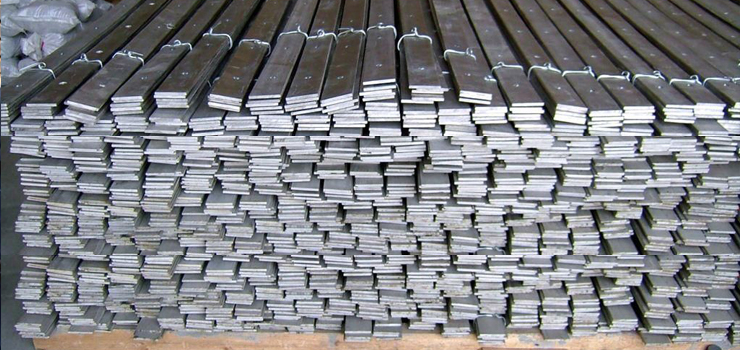
UK suspends Iran, Russia HR flats anti-dumping duties
The UK has partially or completely suspended anti-dumping duties on flat steel from Iran and Russia in the case the product concerned is subjected to safeguard duty, once the applicable import quota has been surpassed, says the UK Trade Remedies Authority.
The trade remedies notice published on 2 August is effective immediately, Kallanish notes.
The anti-dumping duty on the steel goods will be charged only until the relevant import quota is exceeded. After that point, only the portion of the anti-dumping duty exceeding the safeguard duty along with the safeguard duty itself will be charged.
The hot-rolled flat iron, non-alloy, or other alloy steel goods subject to both anti-dumping and safeguard duty are usually imported into the UK under the following UK global tariff (UKGT) commodity codes: 72 08 10 00 00, 72 08 25 00 00, 72 08 26 00 00, 72 08 27 00 00, 72 08 36 00 00, 72 08 37 00 10, 72 08 37 00 90, 72 08 38 00 10, 72 08 38 00 90, 72 08 39 00 10, 72 08 39 00 90, 72 08 40 00 10, 72 08 40 00 90, 72 08 52 10 00, 72 08 52 99 00, 72 08 53 10 00, 72 08 53 90 00, 72 08 54 00 00, 72 11 13 00 11, 72 11 13 00 19, 72 11 14 00 10, 72 11 14 00 91, 72 11 14 00 95, 72 11 19 00 10, 72 11 19 00 91, 72 11 19 00 95, 72 25 19 10 90, 72 25 30 90 00, 72 25 40 90 00, 72 26 19 10 91, 72 26 19 10 95, 72 26 91 91 11, 72 26 91 91 19 and 72 26 91 99 00.
The new specific anti-dumping duty rates payable on hot-rolled steel originating in Iran or Russia vary upon exporter and origin.
In case of Iranian exporters, Mobarakeh Steel Company and others, there will be no anti-dumping duty after the suspension.
For Russian exporters, namely for NLMK and Severstal, there will be no anti-dumping duty after suspension, while for Magnitogorsk Iron Steel Works (MMK) and other Russian producers there will be an anti-dumping duty of £19.57/tonne ($24.90), or 8%. Before the suspension, Iranian exporters were levied with £48.12/t (17.9%).
For Russian exporters, the anti-dumping duty before suspension is £44.61 (15%) for NLMK, £14.73 (5.3%) for Severstal and £80.76 (33%) for MMK and others.
The public notice does not cover HR flat steel originating from Brazil or Ukraine, as it is excluded from the safeguard duty.
Elina Virchenko UAE

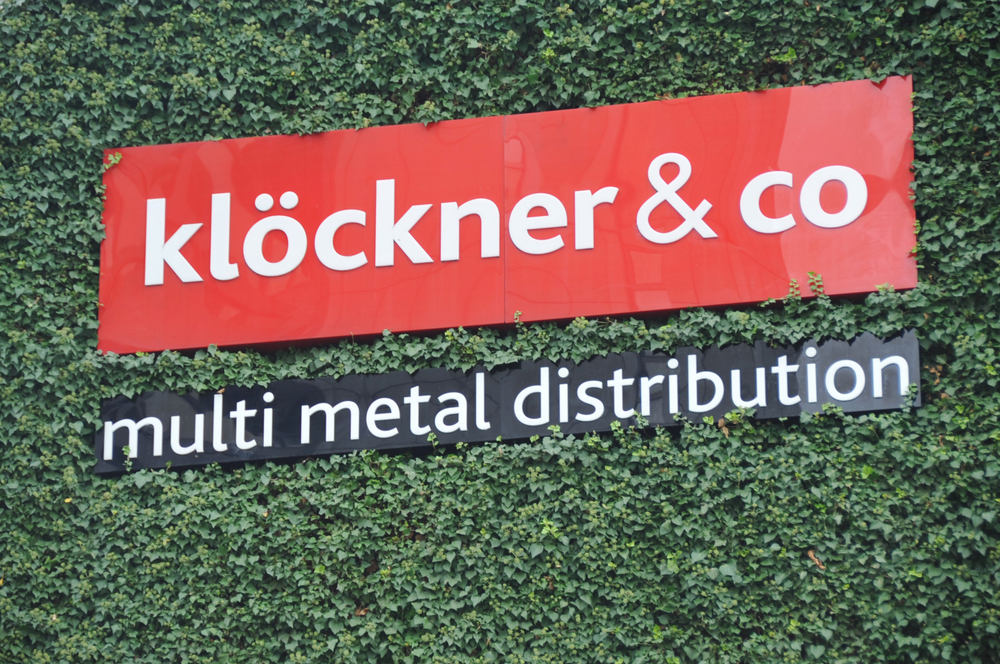
Klöckner pushes ‘transformation’ towards processing in Europe
Klöckner & Co is accelerating its expansion into higher value-added services in Europe, a campaign which it calls a “transformation” of its distribution business.
On the occasion of the announcement of its half-year-results, chief executive Guido Kerkhoff told of several investments into processing, mainly at the company’s German sites.
He emphasised Klöckner’s ambition to “transform commodity warehouses into HVAB [higher value-added business] powerhouses.” The transformation is to a large extent linked with the expansion of laser capabilities. At the company’s headquarters in Duisburg, it will establish a second laser centre with three tube lasers that will complement’s Klöckner’s laser centre in nearby Velten.
Elsewhere, in Kassel, it will invest into a flat-bed laser that will facilitate its entry into the market segment for plate with specific thicknesses. In Bremen, northern Germany, it is about to put into operation an automated vision-guided deburring robot for post plasma-cutting processing. Klöckner claims this facility is unique in Europe and gives it a leadership role for such services.
The company is also pushing investment into downstream services in its other main market, North America (see Kallanish 3 August). In its European market, such ambitions are even more essential, as the company sees little perspective for acquisitions or greenfield sites, unlike in North America.
Christian Koehl Germany


French rebar buyers remain on fence
French rebar activity continues to be sluggish, with no market visibility. Prices are however stable, with sources indicating a slight, €10/tonne ($11) hike compared to mid-July.
The market is now on holiday, and very little is forecast to happen until the end of August. However, stocks at distributors and their clients are low, with distributors reporting empty order books. Sales are taking place from day to day, with no longer-term prospects. Customers and construction companies will adopt a wait-and-see attitude in September and will continue to buy only to cover immediate needs each day.
One seller says he has no orders for September and revenue in July was accumulated from day-to-day sales. Despite the difficulty of working without plans and visibility, and there being limited restocking, the month of July was considered “acceptable”, Kallanish notes.
Some orders for infrastructure projects improved producers’ sales in July but the remaining orders were for small volumes. Domestic rebar prices are hovering at €590-620/t delivered including size extras, depending on tonnage, sources suggest.
Natalia Capra France


